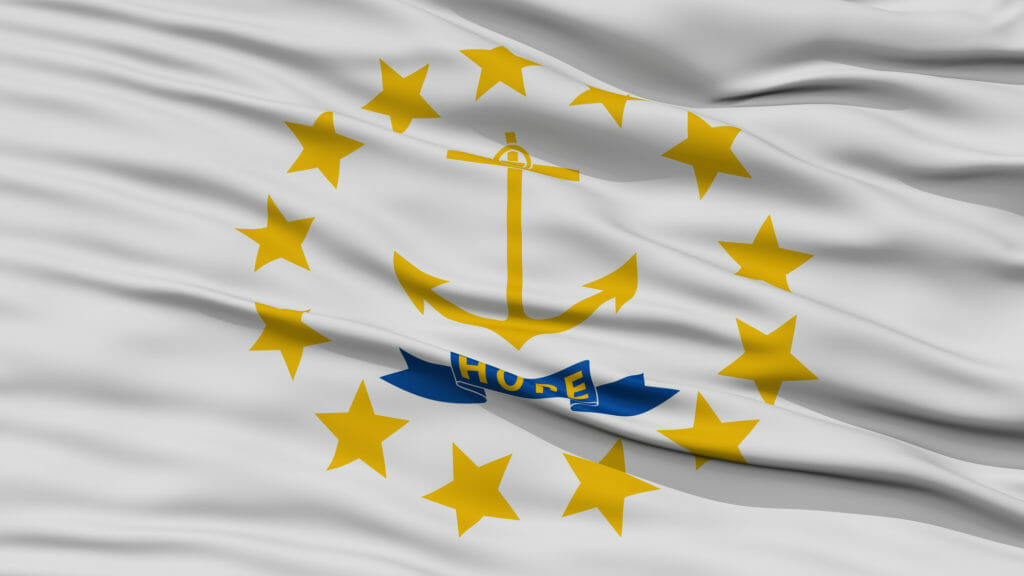
22 Mar Hemp CBD Across State Lines: Rhode Island

The Agriculture Improvement Act of 2018 (2018 Farm Bill) legalized hemp by removing the crop and its derivatives from the definition of marijuana under the Controlled Substances Act (CSA) and by providing a detailed framework for the cultivation of hemp. The 2018 Farm Bill gives the US Department of Agriculture (USDA) regulatory authority over hemp cultivation at the federal level. In turn, states have the option to maintain primary regulatory authority over the crop cultivated within their borders by submitting a plan to the USDA.
This federal and state interplay has resulted in many legislative and regulatory changes at the state level. Indeed, most states have introduced (and adopted) bills that would authorize the commercial production of hemp within their borders. A smaller but growing number of states also regulate the sale of products derived from hemp.
In light of these legislative changes, we are presenting a 50-state series analyzing how each jurisdiction treats hemp-derived cannabidiol (Hemp CBD). Today we turn to America’s smallest state, Rhode Island.
The Rhode Island Department of Business Regulations (RIDBR) is responsible for licensing and regulatory oversight of hemp growers and handlers under the Hemp Growth Act and its hemp regulations. Under the Act, licensed growers produce (or grow) hemp and licensed handlers produce or process hemp into commodities or manufacture hemp products.
Hemp products are defined as “all products made from the plants, including, but not limited to, concentrated oil, cloth, cordage, fiber, food, fuel, hemp-derived consumable CBD products, paint, paper, construction materials, plastics, seed, seed meal, seed oil, and seed certified for cultivation[.]”
The Hemp Growth Act also defines “hemp-derived consumable CBD product” as “any product meant for ingestion, including, but not limited to, concentrates, extracts, and cannabis-infused foods and products, which contains cannabidiol derived from a hemp plant as defined in this section, which shall only be sold to persons age twenty-one (21) or older, and which shall not include products derived from exempt cannabis plant material as defined in 21 C.F.R. § 1308.35.”
More information on the difference between hemp, marijuana, and exempt plant material is available here. Rhode Island requires that licensees comply with traceability requirements, which includes providing unique identifiers (e.g., barcodes on products) to track hemp and hemp products throughout the state.
RIDBR also issues licenses for the sale of Hemp CBD. “Licensed CBD distributor” means a person licensed to distribute hemp-derived consumable CBD products pursuant to this chapter. “Licensed CBD retailer” means a person licensed to sell hemp-derived consumable CBD products pursuant to this chapter.
RIDBR rules state the following:
Nothing in these regulations shall be construed to prohibit wholesale or retail sale of hemp, hemp seeds, hemp derivatives and/or products provided the hemp, hemp seeds, hemp derivatives and/or products comply with the Act, these regulations, and all other applicable laws.
That last bit on “other applicable laws” makes the sale of Hemp CBD foods and dietary supplements risky, given the FDA’s position that Hemp CBD cannot be added to either product type. This would not prohibit or limit the sale of Hemp CBD cosmetics in Rhode Island, so long as they were produced, labeled and marketed in compliance with state and federal law.
There is also uncertainty with regards to smokable hemp products in Rhode Island. On Sept. 25, 2019, Rhode Island’s Governor Gina Raimondo issued an executive order banning flavored vapor products for four months. According to the Rhode Island Department of Health (RHDH), the ban applies to flavored CBD-labeled products as well. The ban is currently effective through March 31, 2020 according to RHDH emergency rules. It is unclear whether the ban impacts the sale of hemp flower or hemp vapor products.
The Hemp Growth Act was enacted in 2016 under the 2014 Farm Bill. It does not appear that Rhode Island has submitted a hemp cultivation plan to the USDA, meaning that the state’s program will have to cease operating by November 1, 2020 when the 2014 Farm Bill expires. Rhode Island producers will need to obtain a license directly from USDA in order to continue operating if the state does not have an approved plan by that date.
For additional updates on changes to Pennsylvania hemp laws and Hemp CBD laws, please stay tuned to the Canna Law Blog. For previous coverage in this series, check out the links below:


Sorry, the comment form is closed at this time.